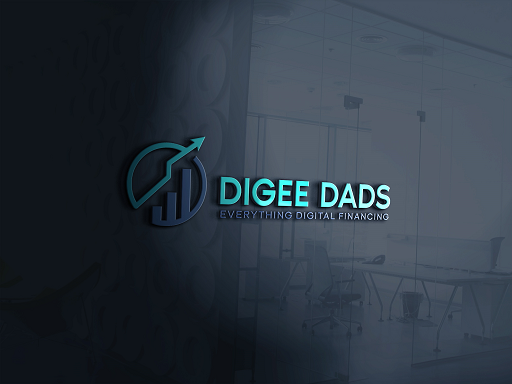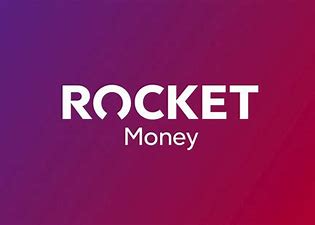What Are the Benefits and Drawbacks of Zero-based Budgeting?
DISCLOSURE: THIS POST MAY CONTAIN AFFILIATE LINKS, MEANING I GET A COMMISSION IF YOU DECIDE TO MAKE A PURCHASE THROUGH MY LINKS, AT NO COST TO YOU!
When it comes to zero base budgeting, what are the benefits and drawbacks? Improving your company’s financial health, budgeting and cost-cutting are two less-than-pleasant but very necessary tasks to complete.
However, while traditional budgeting procedures are stable, static, and simple to set up and use, they may not be able to provide your business with the energy and agility that it needs to thrive in today’s dynamic global market.
Zero-based budgeting, often known as ZBB, is a method of planning that many businesses have adopted.
This cutting-edge technique offers some intriguing prospects to “wash the slate clean” and adopt a fresh approach to budgeting—but it is not for every organization or individual.
You must first grasp the possibilities and limits of the zero base approach to budgeting before deciding if it is appropriate for your company.
What is Zero-Based
Budgeting (ZBB)?
While traditional budgeting approaches begin by developing a budget or forecast for the current year (often based on the previous year’s budget) and then adjusting it to account for various factors such as inflation, actual spending data, updated projections, and so on.
The zero-based budgeting method starts from scratch every month and requires justification for every line item. When using the zero-based budgeting procedure, no line item from the previous month’s budget is automatically moved to the new budget for the following month.
It is important to note that this technique of planning is forward-looking rather than depending on past budget data from the previous month, quarter, or even year.
If traditional budgeting is concerned with controlling expenditures based on what is being spent, zero-based budgeting is concerned with the reasons for each expense that is being incurred.

Even while ZBB is more time-consuming and complex than standard budgeting, it provides companies with a tremendous cost-cutting potential by decreasing “budget bloat” and limiting wasteful expenditure while prioritizing smart decision-making and strategic resource allocation.
The cost of goods sold (COGS) is an example of a cost that is highly versatile and may be used for a variety of expenditures, including operational expenses, marketing expenses, administrative expenses, and other costs.
The Benefits and Drawbacks of Zero-Based Budgeting
If an organization is debating whether or not to employ the ZBB approach, it must weigh the advantages and disadvantages of doing so.
It is not a universal solution, and its capabilities may not be worth the associated risks for companies whose corporate culture, brand, or financial goals necessitate a more traditional manner of budgeting, such as public sector enterprises (e.g., incremental budgeting).
The Advantages of Zero-Based Budgeting
A Cost-Benefit Analysis
The ability to identify and delete those line items that aren’t delivering a sufficient return on investment becomes easier when every line item must be justified (ROI).
Analysis may undoubtedly incorporate additional value-centric metrics such as total cost of ownership (TCO), social capital, and opportunities that are only available during the financial period covered by the budget, but that these metrics must be contextualized within a bigger budget in order to give useful insights for these values.
While zero-based budgeting is done monthly, it can give data for deeper analysis in other financial models that contain data for longer periods of time, such as the fiscal year, if your company incorporates such studies into its processes.
Efficiency in Resource Allocation is a Priority
Once a ZBB system is in place, resources can be used much more efficiently because those expenses that generate a healthy return on investment (in terms of profits, cost reduction, value creation, and so on) receive the resources they require while less critical line items are either moved down the priority list or removed entirely, rather than simply being added to the next budget.
It Advances Business Process Management Optimization
It is possible to “cut the fat” and enable continual progress over time by streamlining spending and concentrating on those products that directly benefit your company through increased value, cost reductions, higher efficiency, and so on.
It also aids in strategic decision-making, financial forecasting, and cash flow management, as well as highlighting chances to reevaluate objectives at the project, department, division, and corporate levels by streamlining workflows and limiting costs.
Strategic Growth and Transparency
By placing a strong emphasis on justifiable expenses and the integration of spending with organizational goals, ZBB encourages project leaders and internal leadership to present clear and compelling explanations for their budgets and demonstrate how spend contributes to the overall growth, profitability, and competitive performance of the company.
Keeps Legacy Expenses within the control
Traditionally, legacy expenses may not be reviewed for years until the organization is forced to take drastic measures as a result of an economic shock.
Spending has a propensity to increase over time, with each department defending its own budget against being reduced. This approach can be narrow-minded, and over time, it can result in a considerable misallocation of available resources.
Zero-based budgeting, if done correctly, can help to avoid this from happening in the first place.
Disadvantages of a Zero-Based Budgeting Approach
It Can Be Difficult and Costly
Zero-based budgeting, in contrast to standard budgeting systems, may be extremely expensive, as well as time-consuming, and hard to put into practice.
When making the switch, the additional training required (including learning to use any new software, workflows, or other tools) combined with the fact that each budget is built from scratch rather than relying on the (quicker and easier) data from the previous year can result in a significant increase in costs. Companies with limited resources may find the burden to be too difficult to bear.
There may also be a problem with time restrictions, with finance teams working long hours (both metaphorically and physically) to coordinate across business divisions in order to guarantee that all budgets are up to date, accurate, and comprehensive throughout the budgeting process.
It Has a Tangible Link
Spending priorities and, by extension, justifying them to stakeholders higher up the financial food chain can quickly become extremely difficult for departments whose deliverables aren’t quite as cut-and-dry as, say, procurement (where the procure-to-pay (P2P) process offers multiple opportunities to adjust workflows and spend for savings and value).
It’s a Disruptive Force

A significant change to your budget process can threaten to disrupt operations due to potential changes driven by strategic decisions to change suppliers, or it can expose you to additional risk if you do not have sufficient data to forecast measurable savings, value, or productivity improvements.
Perhaps the most surprising aspect of disruption is the potential impact on your brand and image.
Internal process changes can have an unanticipated influence on the customer experience, particularly if cost-cutting measures (for example, reduced inventory) result in changes in materials or price that affect the customer’s perceived value.
Can Provide Benefits for Short-Term Thinking
Zero-based budgeting has several significant drawbacks, the most significant of which is that it might encourage short-term thinking by allocating resources to sectors of companies that will create income over the course of the following calendar year or budgeting cycle.
It is possible that certain organizations’ departments that are traditionally seen as long-term expenditures that are not immediately connected to income, such as research and development or worker training, would be left with budgets that are lower than they actually require.
This might be detrimental to a company’s long-term competitiveness since, while these areas may not generate income in the short term, they are frequently essential to the organization’s long-term success.
The Verdict
Every organization, whether private or governmental, large or little, has varied budgetary requirements.
A zero-based budgeting approach might be beneficial if your company or organization wants to make a move toward ROI-focused, efficiency-minded budgeting practices while still preserving the flexibility to capitalize on opportunities and deal with unanticipated interruptions.
ZBB can assist you in developing results-oriented budgets that will help you reduce waste and get your entire team on board to make smart, strategic spending decisions in the short-term budget cycle that will benefit your company in the long run through proactive, intelligent financial management.
So, it was all about the benefits and drawbacks of zero-based budgeting.
Thanks for reading this article and if you like this kind of content don’t forget to sign up for our weekly posts. You are sure to get some value!
Digee Dads
![]()








